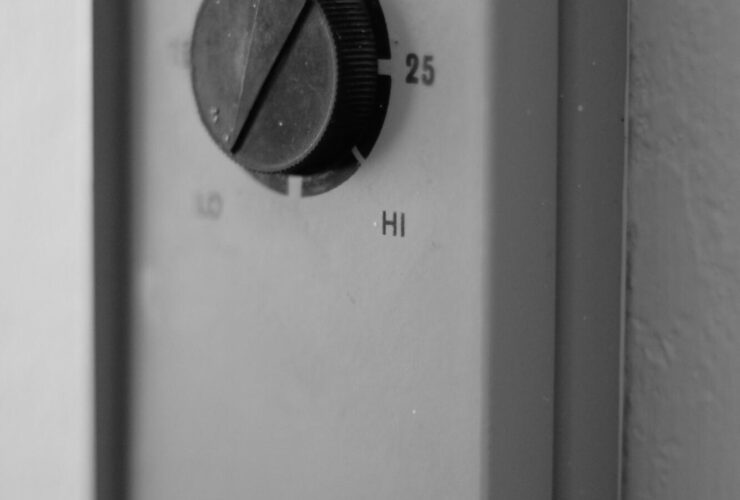Cleaner Air: How to Choose the Best HVAC Air Filter in St. James City, FL
Almost 90% of American households use an HVAC unit today, highlighting the importance of this common appliance in our modern times. Air conditioning is especially important in Florida, given its location in the hot-humid region of the United States. These systems not only serve to improve comfort within an indoor space, but they also improve air quality, reduce odors and fumes, stop insects and parasites, and allow us to sleep better.
By removing pollutants from the air in a home, its occupants are able to breathe cleaner air. This can be achieved by using an effective air filter. An air filter also helps to ensure that an HVAC system isn’t being overworked, something which may increase a home’s energy bills.
It’s essential that, as homeowners, we properly look after our HVAC units. That’s why it is so important to choose the best HVAC air filter. In this blog post, we will highlight how you can choose an HVAC air filter.
Understanding MERV Ratings
When you are choosing an HVAC air filter, it’s important to first understand MERV ratings, which stand for Minimum Efficiency Reporting Value. An air filter’s MERV indicates its ability to capture the airborne particles that flow through a cooling or heating system. Within residential homes, MERV ratings will range from 1 to 16.
A filter with a lower MERV rating will typically be cheaper and will only remove a smaller percentage of pollutants from a home. Put simply, the higher the MERV, the better quality it is. Therefore, an air filter with a rating of between 7 and 12 is considered good quality, while the best quality air filters have an even higher rating.
It’s important to note that while the air filters with higher ratings will not entirely eliminate the need for dusting, they will reduce the frequency. The value of using the MERV rating is that it allows one to compare the performance of different filters. Below, we will highlight some of the different HVAC air filters you can buy today and highlight their average MERV rating.
Fiberglass Air Filters
At the bottom end, you will find fiberglass air filters. This type of air filter has a thin, flat surface that traps airborne particles and cleans the air. However, they are only really effective at removing larger particles such as lint, dust, and small insects.
Fiberglass air filters have a MERV rating of between 1 and 4. Generally, you should aim to replace a fiberglass air filter once a month to ensure that it continues to serve its purpose as well as possible.
Electrostatic Air Filters
A step up from fiberglass air filters are electrostatic air filters. These generally have a MERV rating of between 6 and 8, which represents medium quality. These are disposable filters that contain self-charging electrostatic paper fibers or cotton that are effective at attracting and trapping small airborne particles.
If you live in a home with pets, children, or smokers, then electrostatic air filters are beneficial, especially given that they are affordable in standard sizes. In order to keep your home free of airborne allergens, it is recommended that you replace these air filters every 3 months or so.
Pleated Air Filters
Here, we are moving up to a MERV rating of between 6 and 13. To give you an idea of how effective a 13 rating is, let’s highlight the percentage of airborne particles it can capture:
- 0.30-1.0 microns: less than or equal to 50%
- 1.0-3.0 microns: less than or equal to 85%
- 3.0-10.0 microns: less than or equal to 90%
Disposable pleated air filters are made from polyester or cotton paper. They aren’t expensive; they can be purchased for around $15 or less. As with electrostatic air filters, they have a lifespan of around 3 months.
High-Efficiency Air Filters
The most-effective air filters for residential HVAC systems are known as high-efficiency air filters. These air filters have a MERV rating from 9 to 16. As above, let’s highlight just how effective an air filter with a 16 rating is at capturing airborne particles:
- 0.30-1.0 less than or equal to 95%
- 1.0-3.0 less than or equal to 95%
- 3.0-10.0 less than or equal to 95%
If you are looking for an excellent means of controlling dust and other particles, then high-efficiency air filters are highly recommended.
Reusable Air Filters
In addition to disposable air filters, it is also possible to buy reusable air filters. It is important that these filters are cleared regularly in order to remove dust and debris.
The reality is that often these air filters are not cleaned often enough, in the same way that often disposable air filters are not replaced often enough. If you do decide to opt for reusable air filters, be sure to clean them regularly, otherwise, they may not do the job they’re designed to do.
How to Choose the Best HVAC Air Filter
The bottom line is that there are many different types of HVAC air filters to choose from. These include fiberglass, electrostatic, pleated, high-efficiency, and reusable air filters. Each one comes with a different MERV rating, which is a score given to it based on its ability to capture airborne particles.
If you are unsure which is the best HVAC air filter for your home, then don’t hesitate to speak to our expert and friendly team. Here at Florida Cooling Solutions, we are your No. 1 choice for all your HVAC needs in St. James City, FL.
We are available for HVAC installation, repair, and maintenance. Click here to get a quote. We look forward to speaking with you.




